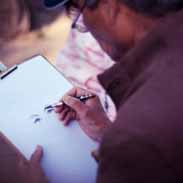History 111 EXAM 1 – Flashcards
Unlock all answers in this set
Unlock answersquestion
Neolithic or Agricultural Revolution
answer
Neolithic, 10,000 years ago the new stone age began in the near east. They discovered farming, and domesticated animal, established villages , made tools, and pottery. Agriculture, is the deliberate planting and cultivation of crops.
question
Mesopotamia
answer
A region from about 5,000 years ago between the Tigris and Euphrates rivers that developed the first urban societies.
question
Sumer
answer
A region of city-states in Mesopotamia that was home to the first civilization. The traditional view is that cities arose about 3000 B.C. in Sumer, the home of the earliest civilization.
question
Hunters/Gatherers
answer
They had to find their food and gather it themselves in the Paleolithic age., Early people who traveled from place to place, hunting and collecting food
question
Egalitarian
answer
A person who believes in the equality of all people
question
Lex Talionis
answer
latin phrase for "an eye for an eye"
question
Akkad
answer
A semitic city to the north of Sumer, Led by Sargon the great in 2350 B.C., Sargon built the first empire.
question
Paleolithic age
answer
The old stone age 2.5 million - 8000 B.C. was known for the use of stone tools
question
Ziggurat
answer
A massive stepped tower on which was built a temple dedicated to the chief god or goddess of a Sumerian city. The Sumeranians built Ziggerats
question
Marduk
answer
A Mesopotamian deity, chief god of the city of Babylon
question
Hammurabi
answer
king of the Babylonian empire; creator of the code of Hammarabi; one of the worlds oldest codes of law
question
Egypt
answer
After Alexander's death, the Ptolemies founded a dynasty in Egypt.
question
who was Menes or Marmer
answer
A ruler of upper Egypt who conquered the Nile Delta and Lower Egypt
question
The pyramid age or old kingdom
answer
About 2686 through 2181 B.C. when royal power had reached its height and the essential forms of Egyptian civilization crystallized.
question
Old Kingdom
answer
From 2181 through 2040 when the nobles' growing power and the enormous expenditure of Egypt human and material resources on building pyramids led to the decline of the old Kingdom.
question
Middle Kingdom
answer
From 2040 through 1786 when strong king reasserted pharaonic rule and reunited the state. Middle Kingdom.
question
New Kindom
answer
In 1570 through 1085 resentful of foreign rule, the Egyptians became more militant and aggressive, they learns to use Hyksos weapons and drove out invaders. This began the New Kingdom.
question
What is cunieform
answer
a system of writing with wedge-shaped symbols invented by the sumerians around 3000 B.C..
question
Ma'at
answer
the Egyptian concept of truth, justice, and cosmic order, represented by a goddess, often portrayed with a feather upon her head.
question
Hatshepsut
answer
1st woman ruler. In 1480 BC Queen Hatshepsut came to power during the New Kingdom. She had herself crowned pharaoh.
question
Amen-Re
answer
the king of all gods and the father of the pharaohs the temple to him was the largest one in Egypt
question
Tutankhamen
answer
Successor of Akhenaton's from 1352 through 1344 B.C., Tutankhamen abandoned the capital at Amarna and returned to Thebes.
question
Hyksos
answer
A group of nomadic invaders from Southwest Asia who ruled Egypt from 1640 to 1570 B.C..
question
Indo-Europeans
answer
A group pf semi-nomadic peoples who, around 2000 B.C.E., began to migrate from central Asia to India, Europe, and the Middle East
question
Iron Age
answer
the period following the Bronze Age; characterized by rapid spread of iron tools and weapons
question
Canaanites
answer
Part of the Israelite Population, Canaan is in the promised land, A member of a Semitic people inhabiting Canaan from late prehistoric times and who were conquered by the Israelites around 1000 B.C.
question
Ur
answer
Was an important Sumerian city-state in ancient Mesopotamia located at the site of modern



